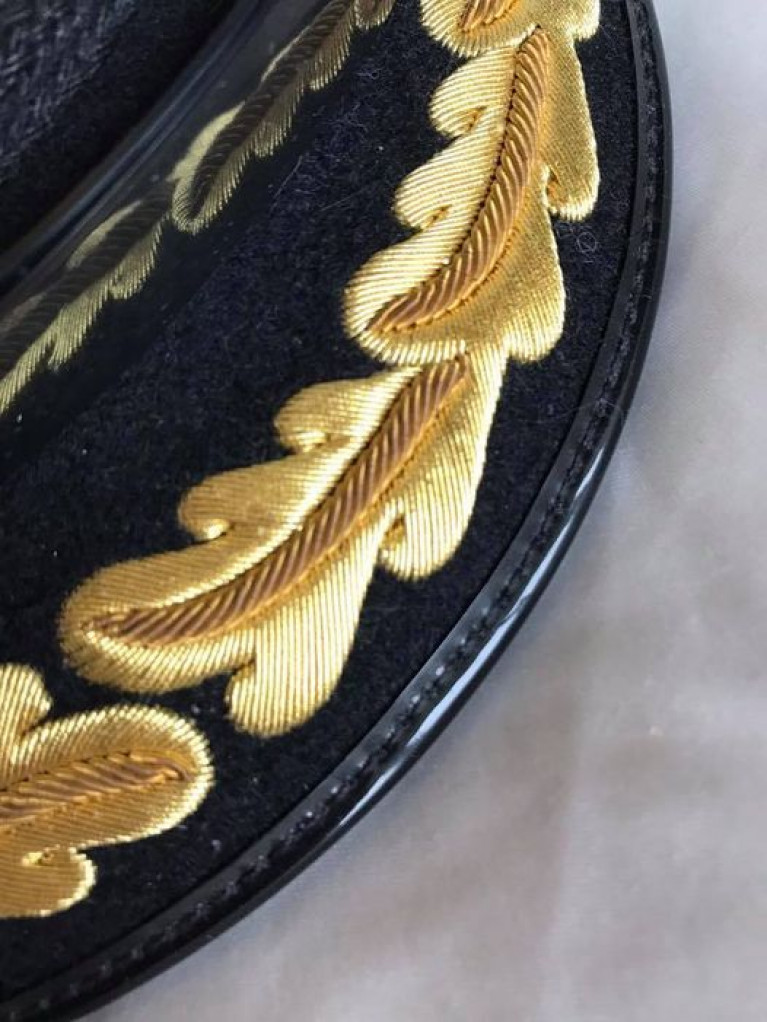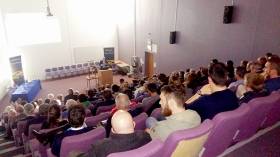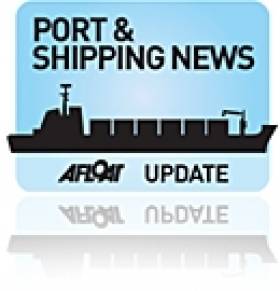Displaying items by tag: Master Mariners
The 2023 seamanship competition for senior Sea Scouts, supported by the Irish Institute of Master Mariners, occurred on 5 March at the National Maritime College of Ireland in Cork Harbour.
24 young people from around Ireland competed for the Captain Desmond Fortune Founders Award and the Captain Cian Timmons Memorial Award. The competition has run since 1995. This was the first time the Captain Cian Timmons Memorial Award was presented for the highest-placing Rover Scout. Captain Timmons was a Sea Scout and a member of the Council of the Irish Institute of Master Mariners.
Competitors were examined on a range of seamanship skills, including testing their knowledge of maritime safety legislation, sea survival and collision regulations. They represented Sea Scout groups in Ringsend, New Ross, Howth, Malahide, Dollymount and the Scout Group in Ballykelly in Co Wexford.
 Sea Scout Master Mariners awards were presented by the Irish Institute of Master Mariners and the Chief Scout of Scouting Ireland, Jill Pitcher Farrell
Sea Scout Master Mariners awards were presented by the Irish Institute of Master Mariners and the Chief Scout of Scouting Ireland, Jill Pitcher Farrell
The examiner pool was diverse and included Sea Scout leaders and external examiners with experience as professional mariners and as members of the Naval Service, Irish Coast Guard and the RNLI. They also included representatives from Irish Sailing and lecturers from the NMCI.
Participants were also treated to a full day experience on 4 March, touring the NMCI, the Naval Base at Haulbowline, and Crosshaven Lifeboat Station, before bedding down in the community garden campsite of the local Crosshaven Sea Scouts.
Awards were presented by the Irish Institute of Master Mariners and the Chief Scout of Scouting Ireland, Jill Pitcher Farrell.
Results
Venture Scouts
Captain Desmond Fortune 'Founders Award'
- 1st - Cormac Eason - 9th Port Malahide Sea Scouts
- 2nd - Dan Clohessy - 9th Port Malahide Sea Scouts
- 3rd - Adam Kavanagh - 12th Wexford Ballykelly Scouts
Rover Scouts
Captain Cian Timmons Memorial Award
- 1st - Óran Ó hIrile - 9th Port Malahide Sea Scouts
- 2nd - Evan Banable - 9th Port Malahide Sea Scouts
- 3rd - Darragh Ryan - 1st Wexford New Ross Sea Scouts
Dan Clohessy won the Eoghan Lavelle Cox'ns Prize for achieving the highest marks in the practical section.
Irish Institute of Master Mariners to Host 'Zoom' Meetings this Saturday, 27 November
The Irish Institute of Master Mariners (IIMM) which is a non-political organisation promoting safe, efficient and professional maritime operations globally, is to hold two meetings using Zoom on this Saturday, 27 November.
In the morning, the next National Council meeting will be held between 11:00 - 12:30.
According to the IIMM's events, further details will be issued closer to the time. In addition, if members have anything they would like put on the agenda to please contact the national secretary. (See officers contacts).
Following this meeting, an hour later, the IIMM is to host their 2021 AGM which is scheduled to take place also on this date and between 13:00 - 14:30.
For any event updates click here in addition to links to their social media pages.
The IIMM is calling upon all Ship Masters and Deck Officers living or originally from Ireland to become a member of to the Institute (about us) which is open to you.
So to make a difference and have your voice heard in maritime affairs, consult for further details which can be found here on: www.mastermariners.com
Master Mariners & The WAFIs
Master Mariners are interesting people to meet and talk with. They are the Captains of their industry… The Shipmasters …. Leaders in the Merchant Navy…. A Master Mariner achieves that designation after years of study, examinations, Cadetship, sea-going service, more examinations as career advancement is achieved in the ships’ officer ranks and regular updating required of qualifications to ‘handle’ a ship…
It is a rank completely misunderstood by the general media… no surprise there when journalists and broadcasters with inadequate maritime knowledge describe those in charge of yachts as Captains or describe Skippers of fishing boats as Captains. It underlines the ignorance amongst the media of the marine sphere and the rank of Captain in the Merchant Navy.
I met Master Mariners at the Pilotage Conference in the National Maritime College in Ringaskiddy on the edge of Cork Harbour. They were discussing ‘Marine Pilotage Today and in the Future.
Four leading marine organisations combined to hold the conference – the Irish Institute of Master Mariners; the Irish Branch of the international Nautical Institute; NMCI Ports, which is the Port Operations Training section of the National Maritime College and the Port of Cork Company.
There was a big attendance of Master Mariners, pilots, cadets and College students. The relationship of Shipmasters and bridge crews aboard vessels with the pilots when they board ships entering harbours, the use of new electronic technology and other emerging trends, the adequacy of the training of pilots and the interaction with tugs when used, to ensure safe towage were amongst the topics discussed.
It was fascinating to hear the problems which can be encountered, the difficulties facing the officers and crew on the ships’ bridge.
I was shown what a large, heavily loaded container ship encountered from a yacht in Cork Harbour. This yacht came from the starboard side and was videoed by the bridge personnel as, despite warnings, it sailed practically under the rapidly approaching bow of the ship. From the bridge view, high up above the ship’s deck, the yacht looked a small but dangerous sight on the video. It ignored the ship and disappeared from view across the ship’s bow, to the consternation of the bridge officers and the pilot…. To the relief of everyone, it emerged on the port side, barely ahead of the ships’ bow.
It was a flagrant breach of safety… Whoever was aboard the yacht showed no consideration for the problems they were causing to the ship which had little room to manoeuvre. Were it an incident on the road I would consider the yacht crew chargeable for highly dangerous driving….
Marine pilots and Shipmasters told me that this was not an unusual incident, but an all-too regular occurrence. While racing events are controlled by clubs and warnings issued to participants about not interfering with shipping, leisure sailors impede ships and yachts are not the only offenders. So are motorboaters, jetskis and angling boats anchored too close to or in the shipping channel.
In commercial harbours shipping traffic has right-of-way, yacht clubs and others operate with the goodwill of the port companies. That needs to be remembered before the ignorance demonstrated on the video shown to me causes the imposition of restrictive regulations on leisure boating.
And what about WAFIS?
I learned that it is a term, not of endearment, used at times by ships’ crews to describe sailors causing dangerous problems for shipping:
The acronym reads in full WIND ASSISTED F…. (use your imagination) IDIOTS…
From what I saw on that container ship’s video in Cork Harbour it can be deserved …. and Cork is not the only harbour where similar incidents occur.
• Listen to the Podcast above
First Woman Elected To Lead Master Mariners
#MasterMariners - The Irish Institute of Master Mariners, the professional body for shipmasters, has elected a woman to lead the organisation for the first time.
Capt Sinead Reen was also the first woman to qualify as a deck officer, having studied at CIT Cork where Nautical Science courses were held before they were transferred to the new National Maritime College at Ringaskiddy, where she now lectures.
She was also the first Irish woman to gain a Certificate of Competency as a Master Mariner and has served at sea aboard supertankers, but she now resides in Crosshaven with her husband, fellow Master Mariner Cormac MacSweeney.
Capt Reen's election underlines the opportunities of a career at sea for women in what has been a male-dominated profession.
The Irish Institute of Master Mariners promotes safe, efficient and professional conduct in the public and commercial maritime sectors. It is a member of the International Federation of Shipmaster's Associations and the Confederation of European Shipmasters.
































































